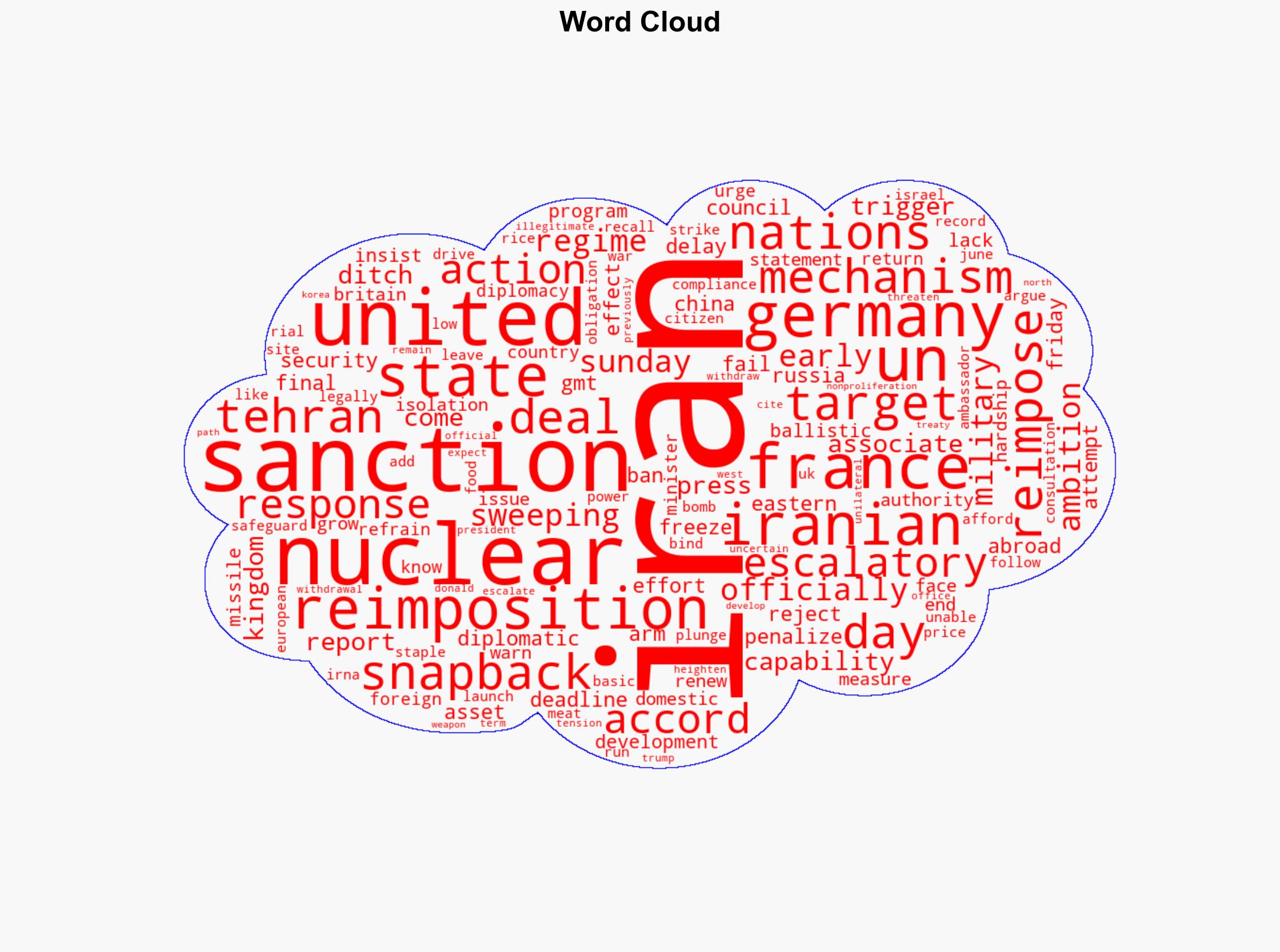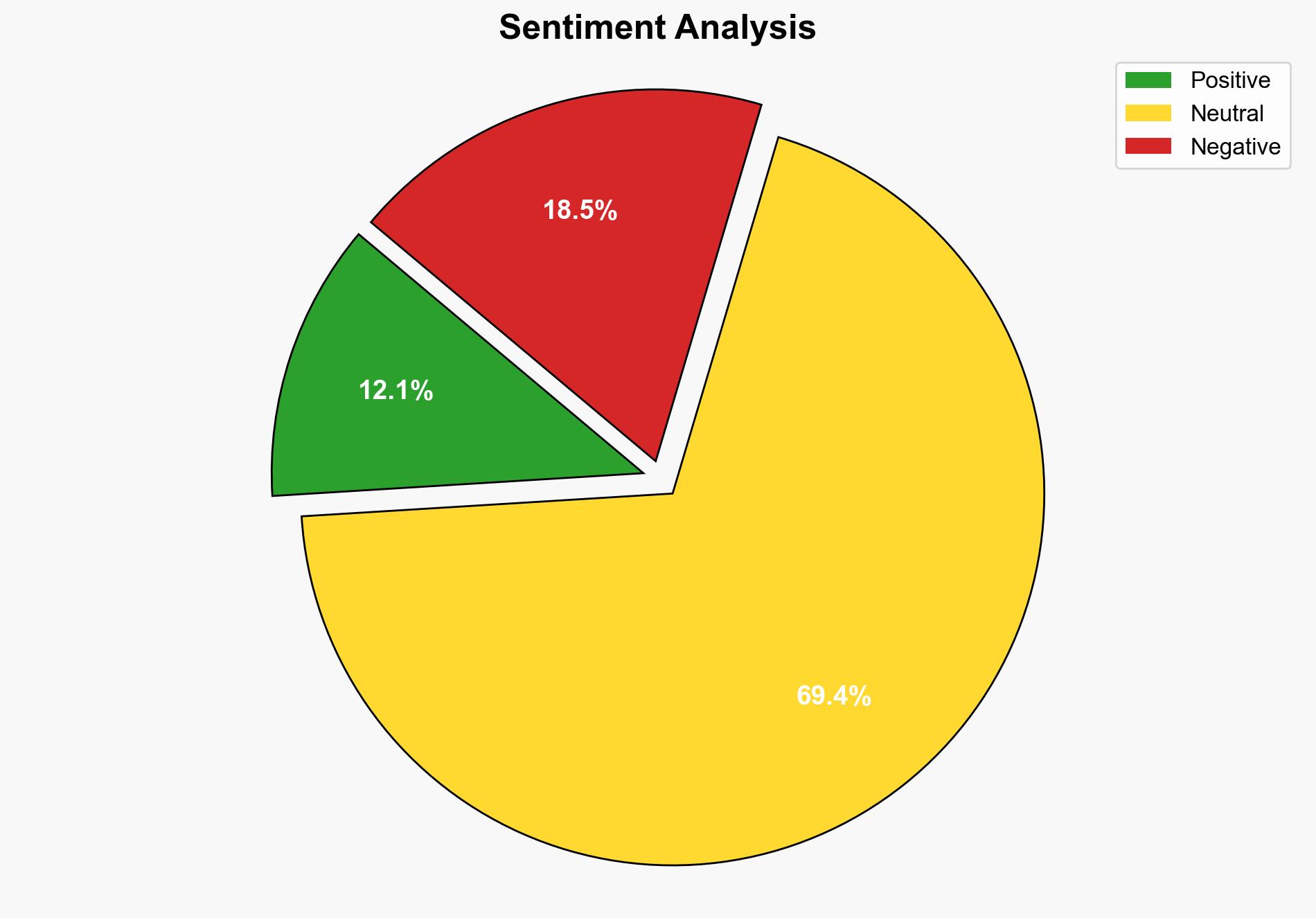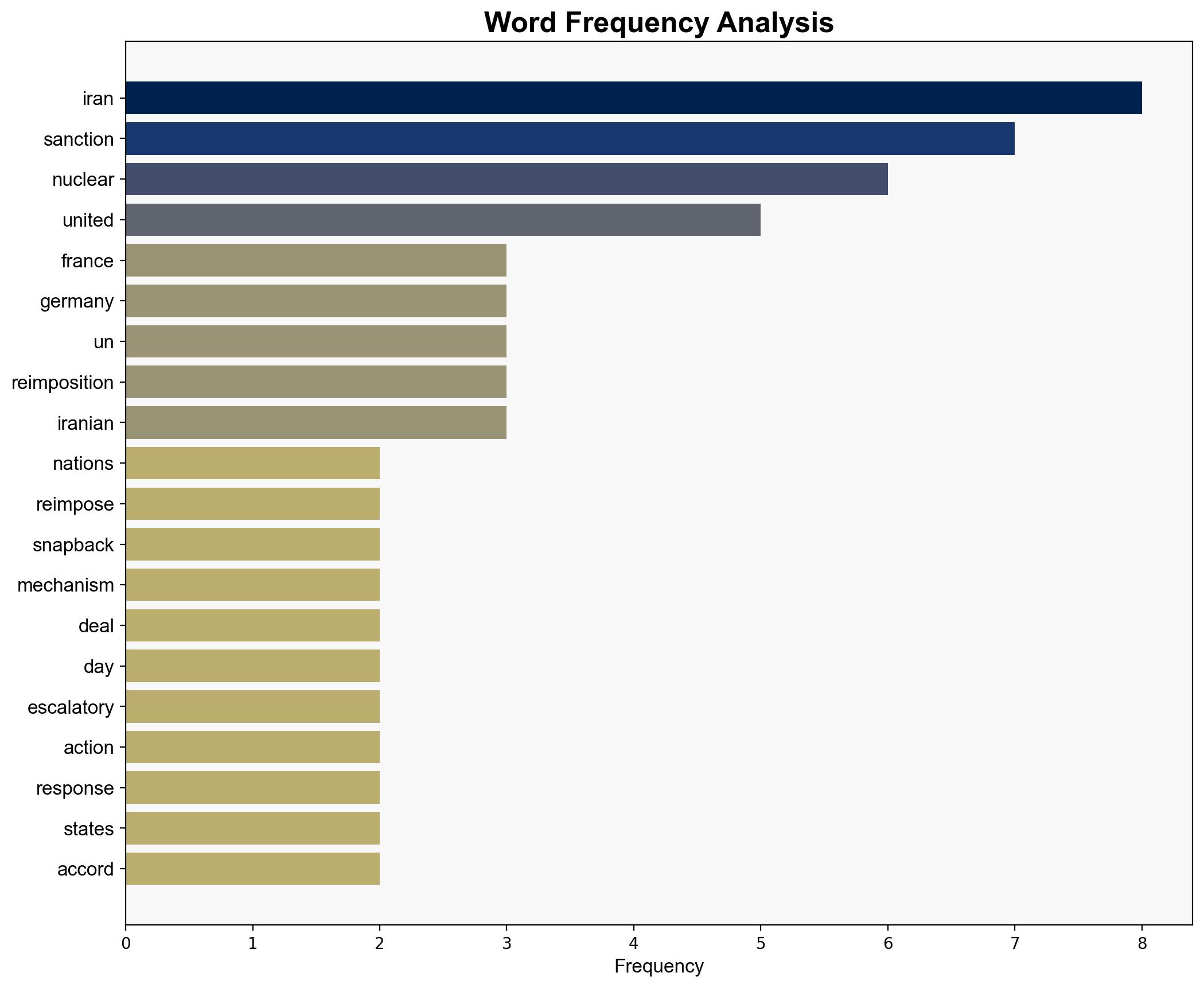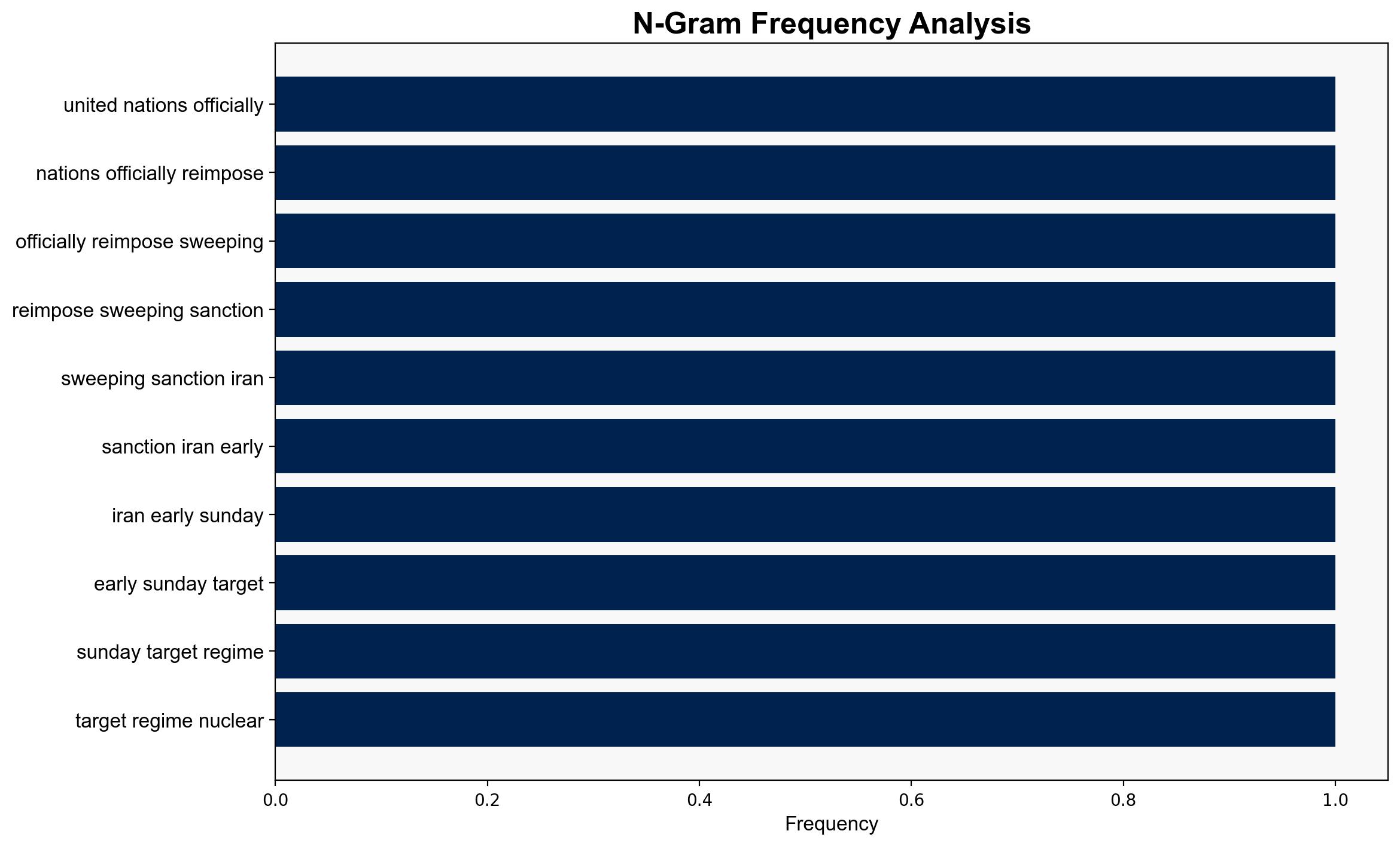Officially Snapback sanctions hit Iran after failed diplomacy – Israelnationalnews.com
Published on: 2025-09-28
Intelligence Report: Officially Snapback sanctions hit Iran after failed diplomacy – Israelnationalnews.com
1. BLUF (Bottom Line Up Front)
The reimposition of UN sanctions on Iran is likely to escalate tensions between Iran and Western powers, potentially destabilizing the region further. The most supported hypothesis is that Iran will respond with escalatory actions, increasing regional instability. Confidence level: Moderate. Recommended action: Strengthen diplomatic channels and prepare for potential economic and military repercussions.
2. Competing Hypotheses
Hypothesis 1: Iran will comply with international demands to avoid further economic hardship and isolation. This hypothesis suggests that Iran may seek to renegotiate terms or return to compliance with the nuclear deal to alleviate sanctions and improve its economic situation.
Hypothesis 2: Iran will escalate its nuclear and military activities in response to the sanctions, leading to increased regional tensions. This hypothesis is based on Iran’s previous threats to withdraw from the Nuclear Nonproliferation Treaty and its history of retaliatory actions.
Using ACH 2.0, Hypothesis 2 is better supported due to Iran’s historical pattern of defiance and the immediate economic pressures exacerbated by the sanctions, which may push Iran towards more aggressive postures.
3. Key Assumptions and Red Flags
– Assumption: Iran values economic relief over nuclear ambitions. This may underestimate Iran’s strategic priorities.
– Red Flag: The unilateral withdrawal of the U.S. from the nuclear accord may have undermined the legitimacy of the snapback mechanism, potentially leading to non-compliance by Iran.
– Missing Data: Lack of detailed intelligence on Iran’s internal decision-making processes and potential clandestine support from allies like Russia and China.
4. Implications and Strategic Risks
– Economic: Sanctions could further cripple Iran’s economy, leading to domestic unrest and potential regime instability.
– Geopolitical: Increased tensions between Iran and Western powers could lead to military confrontations, particularly involving Israel and the United States.
– Cyber: Iran may resort to cyber operations as a form of asymmetric warfare against Western interests.
– Psychological: The Iranian populace may experience heightened nationalism, potentially rallying around the regime despite economic hardships.
5. Recommendations and Outlook
- Engage in multilateral diplomatic efforts to offer Iran a viable path to compliance that includes economic incentives.
- Prepare for potential military escalations by enhancing regional defense alliances and intelligence-sharing mechanisms.
- Monitor cyber activities closely to preempt potential retaliatory cyberattacks.
- Scenario Projections:
- Best Case: Iran returns to compliance, leading to eased sanctions and reduced tensions.
- Worst Case: Iran accelerates its nuclear program, prompting military intervention.
- Most Likely: Continued low-level escalations with intermittent diplomatic engagements.
6. Key Individuals and Entities
– Hassan Rouhani
– Donald Trump
– United Nations Security Council
– IRNA (Islamic Republic News Agency)
7. Thematic Tags
national security threats, cybersecurity, counter-terrorism, regional focus




